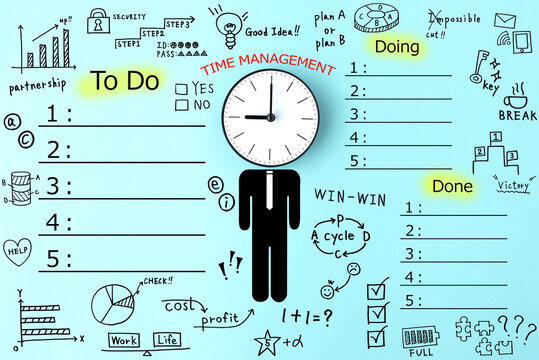As a manager, it’s easy to let the weight of your decisions bear down on you. After all, the choices you make can have a profound impact on your team and the success of your organization. But what happens when you’re faced with a decision that needs to be made quickly? Do you make a snap judgment call or do you consult with others? In this blog post, we’ll explore how collaborating with your manager can help you avoid hasty decisions and ultimately lead to better outcomes for everyone involved. So, buckle up and get ready to learn why two heads are better than one in the world of management.
The Importance of Collaboration in Management Decision-Making
Collaboration is an essential element in management decision-making, as it ensures that all parties involved are invested and committed to the chosen course of action. When making business decisions, rushing to conclusions can be detrimental to the company’s success. In a fast-paced work environment, it’s easy to make snap judgments and take impulsive actions without considering all factors. Working collaboratively with your manager allows you both to weigh options carefully before deciding on the best course of action. Ultimately, collaboration results in better outcomes for everyone involved; managers feel more supported when their employees contribute ideas and insights while employees feel included in important decisions that affect their daily work lives. The bottom line? Collaborative decision-making ensures that every voice is heard and helps build trust between managers and employees.

How Rushing to Conclusions Can Harm Your Business
Rushing to conclusions can have serious consequences for your business. Making decisions without proper analysis can lead to missed opportunities, wasted resources, and even reputational damage. When managers make hasty decisions, it can also create a culture of fear and mistrust among employees. They may feel that their opinions are not valued or that their input is not taken seriously. This can lead to disengagement and a lack of motivation among team members. It’s important to take the time to gather all the facts and consider all options before making any major decisions. By doing so, you’ll be able to make informed choices that benefit your business in the long run.

Why Talking with Your Manager is Crucial Before Any Major Decisions
Talking with Your Manager is Crucial Before Any Major Decisions
One of the biggest mistakes employees make is jumping to conclusions and making decisions in haste. This can be detrimental for your business as it may cause irreversible damage. Instead, take the time to collaborate with your manager before making any major decisions.
By discussing ideas, concerns and options beforehand with your manager, you can gather insights that are critical for sound decision-making. They might even have a perspective or an idea that hadn’t occurred to you before which could lead to a more effective solution.
Moreover, involving managers early on helps build trust between them and employees; especially when they know their opinions matter. Collaboration also empowers employees by giving them a voice in company affairs. By taking this approach you will reduce the risk of poor outcomes while ensuring long-term success of your organization.

Tips for Effective Communication with your manager
Effective communication with your manager is crucial to avoid hasty decisions that can harm your business. Active listening is key to understanding your manager’s perspective and concerns. Encourage them to share their thoughts and ideas, and be open to feedback. Asking clarifying questions can help you gain a deeper understanding of the situation and any potential risks involved. When presenting your own ideas, be clear and concise, and provide supporting evidence or data if possible. It’s also important to establish clear expectations for follow-up actions and timelines. By working collaboratively with your manager, you can make informed decisions that benefit both the business and its stakeholders.

How a Collaborative Approach Reduces Risk and Increases Success
Collaborating with your manager can be a powerful tool for reducing risk and increasing success in decision-making. By working together, you can bring different perspectives and expertise to the table, which can lead to more informed and thoughtful decisions. Effective communication is key to this collaborative approach. It’s important to be clear about your goals and concerns, and to actively listen to your manager’s input. This can help build trust and create a more productive working relationship. Additionally, it’s important to recognize the power dynamics between managers and employees, and to work towards building a relationship based on mutual respect and understanding. By following best practices for productive discussions, such as staying focused on the issue at hand and avoiding personal attacks, you can create an environment that fosters collaboration and leads to better outcomes.
Trust Building Techniques for Managers and Employees
Collaboration requires a certain level of trust between managers and employees. To build trust, it is important to be transparent about goals and expectations. This means sharing information on how decisions are made, providing feedback on performance, and being open to both positive and negative feedback.
Another key technique is active listening. When employees feel heard, they tend to be more invested in the outcome of any decision. Encouraging everyone to share their thoughts also helps foster a sense of ownership over those decisions.
Building relationships outside of formal meetings can help create a culture where collaboration is valued. Whether through team-building activities or social events, giving people time to get to know one another can break down barriers that may prevent productive conversations during business hours.
Ultimately, creating an environment based on mutual respect will encourage collaborative thinking at every level of the organization; this leads not only successful outcomes but also healthier workplace conditions.
Understanding the Power Dynamics between Managers and Employees
Power Dynamics between managers and employees can greatly impact the success of collaboration efforts. Managers may hold more decision-making power, but it is important to remember that employees often have valuable insights and perspectives from their day-to-day work. As an employee, try to approach discussions with your manager as a collaborative effort rather than a power struggle. Be respectful of their role, but also assertive in presenting your ideas and concerns.
On the other hand, managers should be aware of how their position can affect communication dynamics. They must actively listen to their employees’ input without dismissing or belittling them. Encouraging participation from all stakeholders will lead to better outcomes.
It’s essential for both parties involved to establish open lines of communication and trust each other’s intentions throughout the process. By acknowledging potential power imbalances within collaborations, you can find ways to navigate them effectively whilst fostering a healthy working relationship between managers and employees.

Collaborating on Complex Issues: Best Practices for Productive Discussions
The Importance of Collaboration in Decision Making
Collaboration is crucial in decision-making as it allows for diverse perspectives and ideas to be considered. By involving all stakeholders, you can ensure that all relevant information is taken into account and that the decision made is well-informed. This not only reduces the risk of making hasty decisions but also increases the chances of success. Effective communication is key in collaborative decision-making, as it ensures that everyone’s opinions are heard and understood. By working together, managers and employees can build trust and create a more productive work environment. Ultimately, collaboration leads to better outcomes and a stronger business overall.
Effective Communication Strategies for Collaborating with Your Manager
Effective communication strategies are crucial when collaborating with your manager to avoid hasty decisions. Active listening is one key technique that can help ensure a productive discussion. Repeat what your manager has said and ask follow-up questions to clarify their perspective. Transparency is another important factor in successful collaboration, so be clear about any concerns or ideas you have from the outset. Finally, it’s essential to remain open-minded and flexible throughout the conversation, as this will enable both parties to come up with a solution that benefits everyone involved. Remember: taking the time to communicate effectively now can prevent problems down the line and improve overall outcomes for your business.
Identifying and Addressing Biases in Collaborative Decision Making
Collaborative decision-making can be influenced by biases, which can lead to hasty decisions. It’s important to identify and address biases in order to make productive discussions. One common bias is confirmation bias, where people tend to seek out information that confirms their existing beliefs. Another is the sunk cost fallacy, where people continue investing in a project or idea even when it’s no longer viable. To address biases, it’s important to encourage open-mindedness and diverse perspectives. Encourage team members to challenge assumptions and consider alternative viewpoints. By identifying and addressing biases, you can ensure that decisions are made based on objective criteria rather than personal biases or preferences.
Building Trust and Strengthening Relationships with Your Manager through Collaboration
Collaborating on complex issues requires a strong foundation of trust and open communication between managers and employees. Building trust and strengthening relationships with your manager through collaboration is crucial to creating a productive and successful work environment. Start by actively listening to your manager’s perspective and ideas, and be willing to share your own thoughts and insights. Be respectful, honest, and transparent in your communication, and make an effort to understand each other’s goals and priorities. By working together in a collaborative manner, you can build trust, strengthen relationships, and ultimately make better decisions for your business.
Three Case Studies: Real-World Examples of Successful Collaborations
Case Study 1: Effective Communication
In this case study, we will examine how a marketing team worked collaboratively with their manager to solve an issue. The team had been struggling to increase engagement on social media platforms despite implementing various strategies. After discussing the problem with their manager and analyzing data together, they discovered that their target audience was more engaged on different platforms altogether. By focusing on those channels instead, the team was able to increase engagement significantly and meet their targets.
Case Study 2: Building Trust
This case study focuses on a management decision-making process during a merger of two companies where trust building between managers and employees played an essential role in success. Regular town hall meetings were held for everyone involved to discuss any concerns they may have had openly. Additionally, collaboration was encouraged throughout the process by conducting surveys among employees about potential changes after the merger. This approach fostered transparency between both parties while creating trust in management decisions made along the way.
Case Study 3: Productive Discussions
In this third case study, we analyze how an architectural firm approached its communication strategy when dealing with complex issues such as project delays or conflicts within teams. By establishing protocols for decision making, each member of staff knew what steps needed to be taken before making any significant changes or addressing problems with clients or other members of staff directly.
Furthermore, regular check-ins were organized for constructive feedback sessions so that colleagues could share opinions without fear of blame or retaliation from superiors – leading towards productive discussions rather than finger-pointing or defensiveness around difficult topics in question.
In conclusion, collaboration with your manager is key to making informed and effective decisions in management. Rushing to conclusions can harm your business, but taking the time to talk with your manager can lead to better outcomes. Effective communication, trust building, and understanding power dynamics are all important factors in successful collaborations. By following best practices for productive discussions and learning from real-world examples, you can work together with your manager to reduce risk and increase success in your business. Remember, don’t jump to conclusions – talk it out with your manager first.
Questions & Answers
Question: Who should I talk to before jumping to conclusions at work?
Answer: Your manager is the best person to talk to first.
Question: What should I do if I feel like I’m being treated unfairly?
Answer: Talk to your manager to get clarity on the situation.
Question: How can talking to my manager benefit me in the long run?
Answer: It can help you build a better working relationship with your manager.
Question: Who should I talk to if I have concerns about a coworker?
Answer: Talk to your manager to get guidance on how to handle the situation.
Question: What if my manager is the one causing the issue?
Answer: Talk to HR or a higher-up manager for guidance and support.
Question: How can I approach my manager without seeming accusatory?
Answer: Start by expressing your concerns and asking for clarification.
